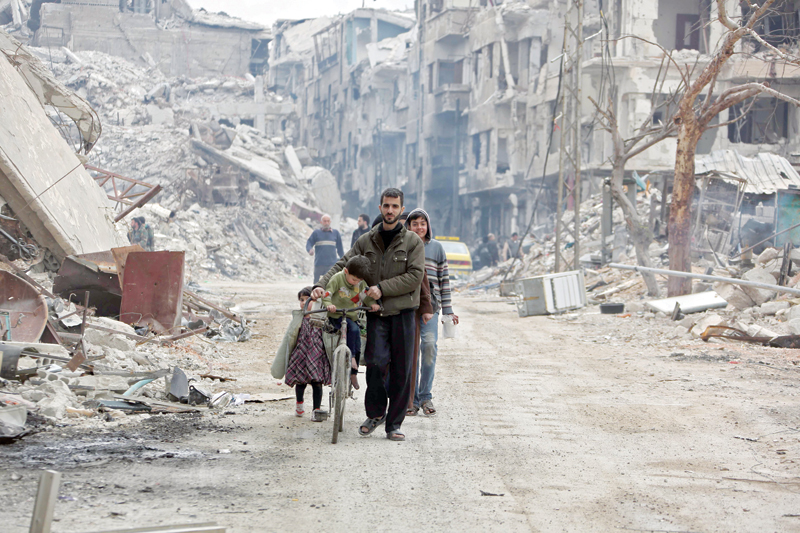

BEIRUT: As it enters its tenth year, the war in Syria is anything but abating, as foreign powers scrap over a ravaged country where human suffering keeps reaching new levels.
When protesters in March 2011 demanded their rights and regime change, they likely never imagined it would trigger a reaction that has led to the 21st century’s biggest war.
Nine years on, President Bashar al Assad is still in power and there to stay, more than 380,000 people have died, dozens of towns and cities razed to the ground and half of the country’s entire population displaced.
Nearly a year after the IS group’s “caliphate” was dismantled, the West’s attention towards Syria was only pricked again last month when Turkey threatened to open the floodgates for migrants seeking to flee to Europe.
While the number of fronts has been reduced by Damascus’ reconquest in recent years, the nature of the war is changing and violence is still raging in the northwest.
Some other regions have long been pacified, but people there have yet to feel the dividends of peace as Syria plays host to a complex international showdown involving Russia, the United States, Turkey, Israel and Iran.
“It’s certainly not a simple international conflict,” said Syria researcher Fabrice Balanche.
Nine years ago, teenagers inspired by Arab Spring uprisings they saw on television, spray-painted a message on the walls of a school in the southern city of Daraa.
“Down with the regime. Your turn, Doctor,” they scrawled, referring to Assad, a trained ophthalmologist.
Within days, security forces detained them, sparking angry protests many say triggered Syria’s uprising.
But a violent crackdown soon saw revolutionaries take up arms, and wrest key areas from government control.
Extremist groups also emerged, most notably IS, which swept across large parts of the country and neighbouring Iraq in 2014.
As the situation unravelled, foreign armies soon entered the arena, eventually leading Damascus, with the support of Russia and Iran, to regain the upper hand.
It now controls 70 per cent of the country. — AFP
Oman Observer is now on the WhatsApp channel. Click here



